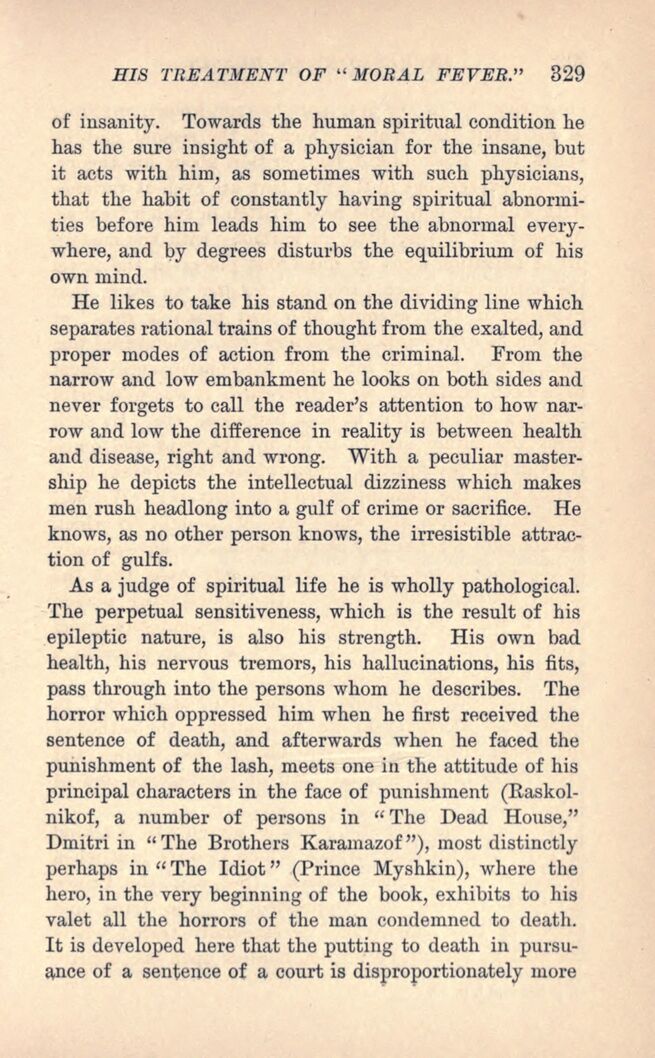
Full resolution (JPEG) - On this page / på denna sida - Impressions of Russian Literature - VI

<< prev. page << föreg. sida << >> nästa sida >> next page >>
Below is the raw OCR text
from the above scanned image.
Do you see an error? Proofread the page now!
Här nedan syns maskintolkade texten från faksimilbilden ovan.
Ser du något fel? Korrekturläs sidan nu!
This page has been proofread at least once.
(diff)
(history)
Denna sida har korrekturlästs minst en gång.
(skillnad)
(historik)
of insanity. Towards the human spiritual condition he
has the sure insight of a physician for the insane, but
it acts with him, as sometimes with such physicians,
that the habit of constantly having spiritual abnormities
before him leads him to see the abnormal everywhere,
and by degrees disturbs the equilibrium of his
own mind.
He likes to take his stand on the dividing line which
separates rational trains of thought from the exalted, and
proper modes of action from the criminal. From the
narrow and low embankment he looks on both sides and
never forgets to call the reader’s attention to how
narrow and low the difference in reality is between health
and disease, right and wrong. With a peculiar mastership
he depicts the intellectual dizziness which makes
men rush headlong into a gulf of crime or sacrifice. He
knows, as no other person knows, the irresistible
attraction of gulfs.
As a judge of spiritual life he is wholly pathological.
The perpetual sensitiveness, which is the result of his
epileptic nature, is also his strength. His own bad
health, his nervous tremors, his hallucinations, his fits,
pass through into the persons whom he describes. The
horror which oppressed him when he first received the
sentence of death, and afterwards when he faced the
punishment of the lash, meets one in the attitude of his
principal characters in the face of punishment
(Raskolnikof, a number of persons in “The Dead House,”
Dmitri in “The Brothers Karamazof”), most distinctly
perhaps in “he Idiot” (Prince Myshkin), where the
hero, in the very beginning of the book, exhibits to his
valet all the horrors of the man condemned to death.
It is developed here that the putting to death in
pursuance of a sentence of a court is disproportionately more
<< prev. page << föreg. sida << >> nästa sida >> next page >>